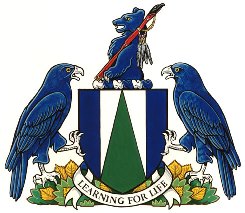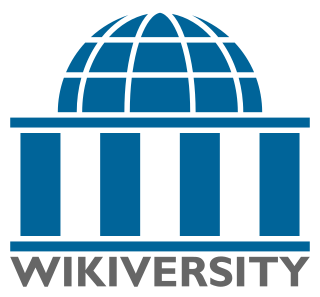Related Research Articles

The Professional Association of Diving Instructors (PADI) is a recreational diving membership and diver training organization founded in 1966 by John Cronin and Ralph Erickson. PADI courses range from entry level to relatively advanced recreational diver certification, several specialized diving skills courses, usually connected with specific equipment or conditions, some diving related informational courses and a range of recreational diving instructor certifications. They also offer various technical diving courses. As of 2022, PADI is reported to have issued 29 million scuba certifications.

Collaboration is the process of two or more people, entities or organizations working together to complete a task or achieve a goal. Collaboration is similar to cooperation. Most collaboration requires leadership, although the form of leadership can be social within a decentralized and egalitarian group. Teams that work collaboratively often access greater resources, recognition and rewards when facing competition for finite resources.

Athabasca University (AU) is a Canadian public research university that primarily operates through online distance education. Founded in 1970, it is one of four comprehensive academic and research universities in Alberta, and was the first Canadian university to specialize in distance education.
Human resource management is the strategic and coherent approach to the effective and efficient management of people in a company or organization such that they help their business gain a competitive advantage. It is designed to maximize employee performance in service of an employer's strategic objectives. Human resource management is primarily concerned with the management of people within organizations, focusing on policies and systems. HR departments are responsible for overseeing employee-benefits design, employee recruitment, training and development, performance appraisal, and reward management, such as managing pay and employee benefits systems. HR also concerns itself with organizational change and industrial relations, or the balancing of organizational practices with requirements arising from collective bargaining and governmental laws.
Adaptive management, also known as adaptive resource management or adaptive environmental assessment and management, is a structured, iterative process of robust decision making in the face of uncertainty, with an aim to reducing uncertainty over time via system monitoring. In this way, decision making simultaneously meets one or more resource management objectives and, either passively or actively, accrues information needed to improve future management. Adaptive management is a tool which should be used not only to change a system, but also to learn about the system. Because adaptive management is based on a learning process, it improves long-run management outcomes. The challenge in using the adaptive management approach lies in finding the correct balance between gaining knowledge to improve management in the future and achieving the best short-term outcome based on current knowledge. This approach has more recently been employed in implementing international development programs.

Open educational resources (OER) are teaching, learning, and research materials intentionally created and licensed to be free for the end user to own, share, and in most cases, modify. The term "OER" describes publicly accessible materials and resources for any user to use, re-mix, improve, and redistribute under some licenses. These are designed to reduce accessibility barriers by implementing best practices in teaching and to be adapted for local unique contexts.

Civic engagement or civic participation is any individual or group activity addressing issues of public concern. Civic engagement includes communities working together or individuals working alone in both political and non-political actions to protect public values or make a change in a community. The goal of civic engagement is to address public concerns and promote the quality of the community.
Educause is a nonprofit association in the United States whose mission is "to advance higher education through the use of information technology". Membership is open to institutions of higher education, corporations serving the higher education information technology market, and other related associations and organizations.

The Higher Learning Commission (HLC) is an institutional accreditor in the United States. It has historically accredited post-secondary education institutions in the central United States: Arizona, Arkansas, Colorado, Illinois, Indiana, Iowa, Kansas, Michigan, Minnesota, Missouri, Nebraska, New Mexico, North Dakota, Ohio, Oklahoma, South Dakota, West Virginia, Wisconsin, and Wyoming. The headquarters of the organization is in Chicago, Illinois.
A community of practice (CoP) is a group of people who "share a concern or a passion for something they do and learn how to do it better as they interact regularly". The concept was first proposed by cognitive anthropologist Jean Lave and educational theorist Etienne Wenger in their 1991 book Situated Learning. Wenger then significantly expanded on the concept in his 1998 book Communities of Practice.

EdLab is an education research organization located at Columbia University's Teachers College in New York City. The EdLab attempts to create easier methods of education through communication and advancements in technology, and serves as both a university and community resource center.
The mission of EdLab is to engage in conceptual development, demonstration projects, and new educational research to explore and document diverse possibilities for the future of education.
An open textbook is a textbook licensed under an open license, and made available online to be freely used by students, teachers and members of the public. Many open textbooks are distributed in either print, e-book, or audio formats that may be downloaded or purchased at little or no cost.

A hackerspace is a community-operated, often "not for profit", workspace where people with common interests, such as computers, machining, technology, science, digital art, or electronic art, can meet, socialize, and collaborate. Hackerspaces are comparable to other community-operated spaces with similar aims and mechanisms such as Fab Lab, men's sheds, and commercial "for-profit" companies.
The State Administration of Foreign Experts Affairs was an agency of the government of the People's Republic of China (PRC) that operated under the State Council and the Ministry of Human Resources and Social Security. It was responsible for recruiting foreign experts outside of mainland China - including Taiwan and the special administrative regions - for work in the PRC, and managing the training of Chinese nationals outside of the PRC. It was headquartered in Zhongguancun, Haidian District, Beijing.

Wikiversity is a Wikimedia Foundation project that supports learning communities, their learning materials, and resulting activities. It differs from Wikipedia in that it offers tutorials and other materials for the fostering of learning, rather than an encyclopedia. It is available in many languages.

The Organization for Transformative Works (OTW) is a nonprofit, fan activist organization. Its mission is to serve fans by preserving and encouraging transformative fan activity, known as "fanwork", and by making fanwork widely accessible.
Second Life is used as a platform for education by many institutions, such as colleges, universities, libraries and government entities.
MERLOT is an online repository and international consortium of institutions of higher education, industry partners, professional organizations and individuals. MERLOT partners and members are devoted to identifying, peer reviewing, organizing and making available existing online learning resources in a range of academic disciplines for use by higher education faculty and students.
Colleges Scotland is the umbrella organisation for the college sector in Scotland. It was rebranded in 2012 from the old name Scotland's Colleges. The Scottish Further Education Unit, its Continuing professional development arm, was also rebranded to College Development Network.
Virtual exchange is an instructional approach or practice for language learning. It broadly refers to the "notion of 'connecting' language learners in pedagogically structured interaction and collaboration" through computer-mediated communication for the purpose of improving their language skills, intercultural communicative competence, and digital literacies. Although it proliferated with the advance of the internet and web 2.0 technologies in the 1990s, its roots can be traced to learning networks pioneered by Célestin Freinet in 1920s and, according to Dooly, even earlier in Jardine's work with collaborative writing at the University of Glasgow at the end of the 17th to the early 18th century.
References
- ↑ Wilson, John P. (2013-12-16). The Routledge Encyclopaedia of UK Education, Training and Employment: From the Earliest Statutes to the Present Day. Routledge. ISBN 9781317796527.
- ↑ Transforming Lives, Transforming Scotland Archived 2016-09-11 at the Wayback Machine : An Overview by the Review’s ‘Core Group’, Scottish Governmental Publication, June 2007
- ↑ "Colleges Open Learning Exchange Group | DueDil". www.duedil.com. Retrieved 2016-08-31.
- ↑ "Scotland's colleges chief quits after row with board". Herald Scotland. 25 August 2009. Retrieved 2016-08-31.